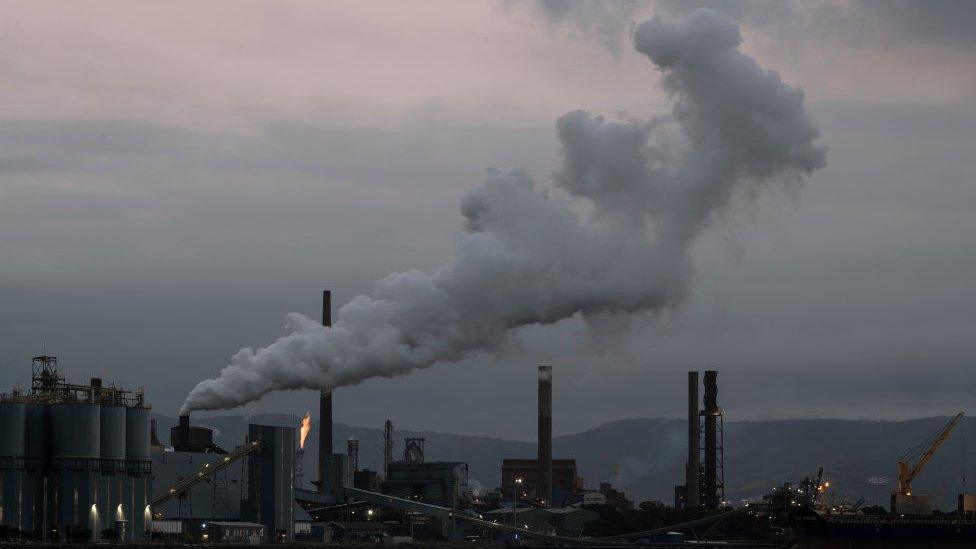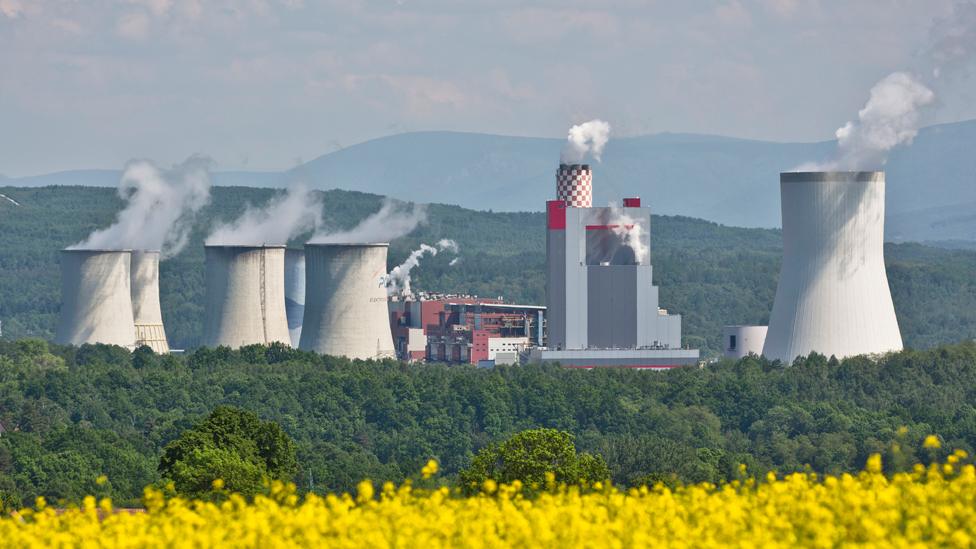Australia attacks sweeping EU climate plan to tax imports
- Published

Researchers rank Australia as the third most polluting fossil fuel exporter behind Russia and Saudi Arabia
Australia, one of the world's biggest fossil fuel exporters, has strongly criticised the European Union's proposal to enact a carbon border tax.
The measure was confirmed yesterday in the EU's sweeping new climate plan.
Such a tax would make exporters to the EU pay more for goods like steel and cement, to level the playing field for European firms paying carbon permits.
But Australia has argued that such a tariff would be "protectionist" and could breach trade rules.
Trade Minister Dan Tehan said Australia would be "looking very closely" at how it would be imposed, with a view to any potential rule breaches.
"The last thing the world now needs is extra protectionist policies being put in place," Mr Tehan told the Australian Broadcasting Corporation (ABC) on Thursday.
Just 4% of Australia's exports directly go to Europe, but such a tax, if passed, will likely create flow-on costs for Australia's resource sales to China and other major Asian markets.
Mined commodities such as iron ore, coal, gas and oil account for more than two thirds of Australia's export wealth.
Mr Tehan suggested the EU was "unilaterally imposing its views and its ways on other countries" and such a tax would "undermine" global co-operation on reducing emissions.
"[This] is not necessarily going to achieve the outcomes we're all looking for and that's why we'll be looking to discuss this further with them, " he said, referencing November's COP26 summit in Glasgow.
But environmental critics say Australia has been an outlier in rebuffing such climate action. The UK and the US are also considering carbon border measures to ensure countries like Australia with weaker climate goals don't undermine their emission reduction efforts.
Australia’s 2019/2020 summer of weather extremes drew global concern
Australia's conservative government has rejected pricing carbon as a climate action tactic since 2014, when it abolished an emissions trading scheme set by the previous Labor government.
Researchers rank Australia as the third most polluting fossil fuel exporter behind Russia and Saudi Arabia.
Despite pressure from allies Australia remains one of the few G20 nations that has not yet committed to a net zero 2050 emissions goal.
Prime Minister Scott Morrison has said the nation "hopes" to reach that goal through investment in technology like carbon capture and storage systems, as opposed to carbon tax instruments.
Related topics
- Published14 July 2021
